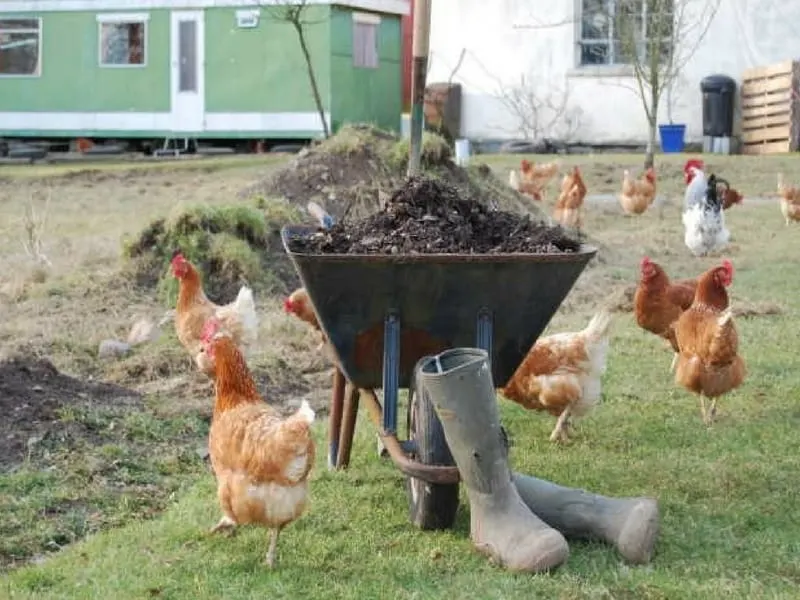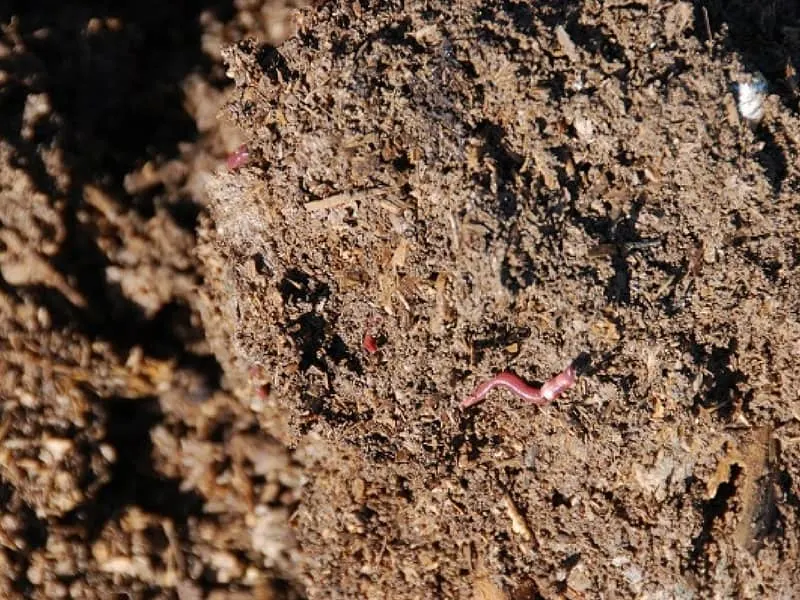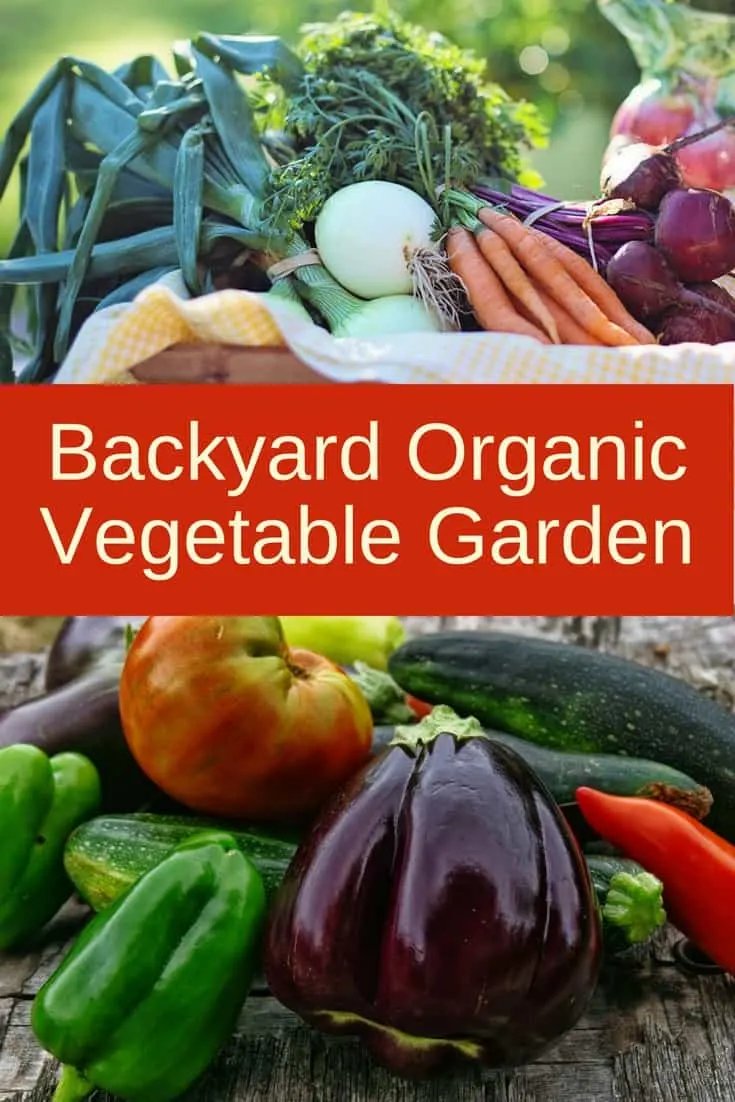There’s no denying that vegetables from your own garden are much better than anything you can buy from the grocery store. Organic vegetables are expensive to buy, so why not grow your own backyard organic vegetable garden that can give you delicious veggies for the entire year?

Growing A Backyard Organic Vegetable Garden
Starter Vegetable Gardens: 24 No-Fail Plans for Small Organic Gardens Can you really grow true organic vegetables? Probably not. But it is certainly possible to produce vegetables in an organic environment, so that they are organic even if lacking the label.
Can you really grow true organic vegetables? Probably not. But it is certainly possible to produce vegetables in an organic environment, so that they are organic even if lacking the label.
Why would your vegetables not be truly organic?
Food that carries the name organic needs to comply with the organic method of farming. This involves soil testing, certification and compliance assessment, which would not be appropriate/necessary for a home vegetable garden.
You can, of course, test the soil to see if it contains any chemicals. Or, if you know what’s been used on the soil in recent years, you shouldn’t worry about it.
For most of us interested in starting an organic vegetable garden, what matters is the process, not the paper certification.
Now, before you start your backyard organic vegetable garden you need to take care of the soil.
Organic Vegetable Garden Soil Preparation

A good organic garden starts with rich, healthy soil. Here are a few ways you can improve your garden soil to prepare it for your backyard organic garden:
- Horse manure will provide both nutrients and soil structure. Just make sure that the horses that produced the waste were fed organically. This may be difficult unless you were collecting from grazed fed animals. And even then you would need to be sure that no pesticides or insecticides had been used on the grass.
- Another possible organic manure provider could be organic beef, lamb or milk producers. Unfortunately, they are unlikely to offer their animal waste for free, since they need to fertilize their pastures organically.
- Leaf mold is another good option, but it does have limitations when it comes to nutrients. Combining leaf mold with an organic all purpose fertilizer would help.
- Garden compost would be ideal, but if you are growing organically you can only use organically composted material. Otherwise, whatever non-organic items were used in the compost would contaminate your organic garden.
Organic gardening cover crops
David’s Garden Seeds Cover Crop Fall Green Manure DGS2613A (Multi) Open Pollinated One Pound Package Another way to build up the soil in your organic garden is to plant an organic cover crop. The most popular ones are clover, buckwheat, winter rye, and hairy vetch.
Another way to build up the soil in your organic garden is to plant an organic cover crop. The most popular ones are clover, buckwheat, winter rye, and hairy vetch.
By planting one of these (or a a combination) in the fall, you save the soil from eroding and prevent weed seeds from getting into the soil and taking root there. Planting a cover crop will also help the soil fix nitrogen and the roots of the cover crop will loosen up the soil, making it better for next year’s garden.
Another plant that helps improve soil is comfrey, a herb that draws nutrients from very deep in the soil.
Comfrey produces a lot of potassium rich leaves and can be made into a tea or allowed to rot down to a black liquid to dilute with water. This liquid is a fantastic liquid tomato food and can be watered twice weekly to any flowering or fruiting vegetable plant at the first sign of flowers.
Nettles are another superb plant, as a nettle tea is rich in nitrogen, perfect to feed to leaf growing vegetables such as spinach, salads and cabbages. We LOVE making nettle soup. I need to remember to share my recipe next year when it comes out 😉
Organic Vegetable Garden Mulch
To keep weeds under control and the soil moist, you need to use mulch. For an organic garden, make sure you use only organic mulches, such as leaves, grass clipping, sawdust and wood chips, and hay.
Take time to do a good job mulching and it will save you many hours of backbreaking weed pulling.
Organic Vegetable Gardening Seeds
When starting an organic vegetable garden seeds are essential. Learn to save seeds from your own crops, and you’ll be all set.
But if you’re just starting out, look for certified organic vegetable seeds.
Hopefully you now have a good understanding of how to start your own backyard organic vegetable garden. Your family will enjoy wholesome food.





Weber 2820 Smokey Mountain Cooker & Smoker -
Monday 28th of November 2022
[…] is nothing better than ribs or chicken that has been smoked to perfection in your own backyard. Many people pay a great deal of money to purchase smoked meats because they do not have the […]
29 Great Gardening Quotes
Wednesday 21st of July 2021
[…] knows? With all of the organic food you’re about to eat, maybe you will! […]
Best Gardening Books For Beginners To Up Your Gardening Game!
Monday 4th of January 2021
[…] Organic Gardening. Using all-natural methods and organic options are always a good idea when it comes to your garden. There are so many great resources on how you can accomplish this. […]
How To Succeed With Your First Time Vegetable Garden
Thursday 25th of July 2019
[…] Once you figured out what you’d like to grow, calculate how much space you need. Here’s some information on how to start a new garden, and how to produce organically grown vegetables. […]
Weber 2820 Smokey Mountain Cooker & Smoker Review
Friday 21st of September 2018
[…] is nothing better than ribs or chicken that has been smoked to perfection in your own backyard. Many people pay a great deal of money to purchase smoked meats because they do not have the […]